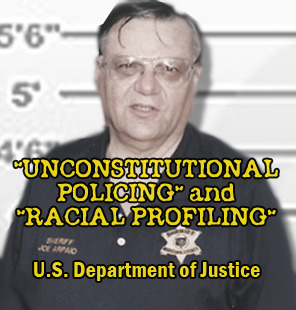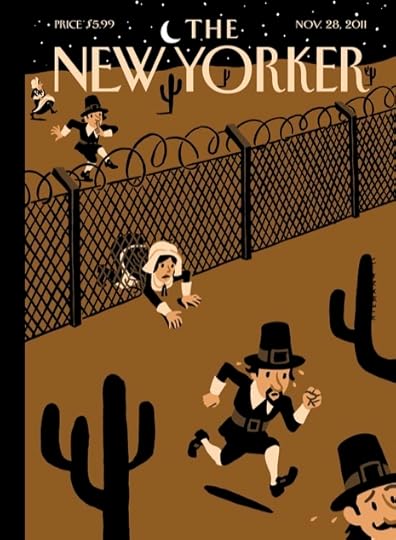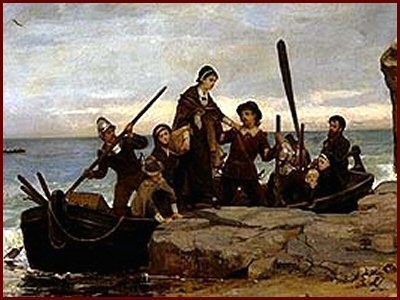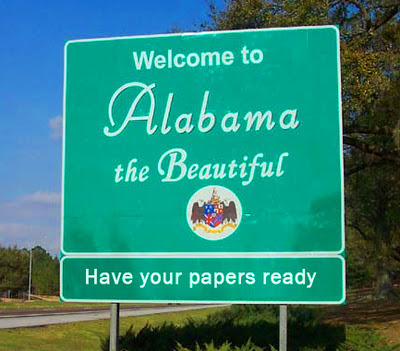Raul Ramos y Sanchez's Blog, page 18
December 30, 2011
New immigrants = New Jobs
Both ends of the political spectrum in the U.S. seem to agree on one thing at least: Small businesses are the real creators of new jobs. The
Forbes
article below reports that Latino-owned businesses are leading the recovery and growing at more than twice the national average, something that should stick in the craw of those who argue that Latino immigration is a detriment to the U.S. economy.

Latino-Owned Businesses: Leading the Recovery
While there can be debate about what it means, the unassailable fact is that Latino -owned businesses in the United States are growing at a blistering pace — in fact more than twice the national average. This trend has been sustained for at least the last decade and manifests itself both in the growing number and size of Latino- owned businesses. During the latest 5-year period for which information is available from the census bureau, Latino owned business' revenue jumped by an astonishing 55% to nearly $350 billion. Some think that the census data underestimates the economic clout of Latino businesses, estimating the sales of such businesses in 2008 at $547 billion. Many are very substantial businesses with numerous employees: the number of Latino- owned businesses with more than $1 million in revenue grew to over 44,000 in 2007, up from just 29,000 five years earlier.
The experts expect that this trend will continue over the next decade. Latino-owned businesses are expected to increase their total revenue contribution to the economy by 8% annually over the 10 years from 2005 to 2015. This is more than three times the average growth for all businesses. What does this mean: Latinos will have more economic clout, employ a greater proportion of the population and purchase substantially more in goods and services than they do today. Already this trend has had a major impact in states with large Latino populations. For example, more than 20 % of all businesses in New Mexico, Florida and Texas are owned by Latinos, and even in the state with the largest economy, California, the figure is fast approaching 20%.
Since in the United States, small business has always been the gateway to affluence, this means that a growing proportion of Latinos will find economic success. Inevitably this will lead to greater roles for Latino business owners in local chambers of commerce, local communities and government. Moreover, more Latino- owned businesses could mitigate the effects of the discrimination that Latinos still suffer in many communities, benefitting Latino employees with higher wages and more opportunities for advancement. Of course, the economic benefits from the dynamic growth of Latino businesses are not limited to the Latino community: one study in Los Angeles showed that growth of Latino owned businesses is a major factor in helping the city to recover from the devastating effects of the recession on its economy. The positive trends caused by Latino entrepreneurship can benefit the entire national economy and help the country to start growing again.
Not surprisingly, the political class has noticed these trends. In making its case for the passage of the American Jobs Act, the Obama administration has argued forcefully that it will benefit 2 million Latino- owned businesses across America. It has also touted the role of the Minority Business Development Agency inside the Commerce Department as a partner for Latino-owned businesses, and has said that Latino- owned businesses must plan a prominent role in increasing trade with the dynamic economies of South and Central America.
While much of the economic news we hear today is bleak, the dynamic growth of Latino-owned businesses is a bright spot that will likely transform the economic and political landscape in the United States in the years ahead.

[image error]


Latino-Owned Businesses: Leading the Recovery
While there can be debate about what it means, the unassailable fact is that Latino -owned businesses in the United States are growing at a blistering pace — in fact more than twice the national average. This trend has been sustained for at least the last decade and manifests itself both in the growing number and size of Latino- owned businesses. During the latest 5-year period for which information is available from the census bureau, Latino owned business' revenue jumped by an astonishing 55% to nearly $350 billion. Some think that the census data underestimates the economic clout of Latino businesses, estimating the sales of such businesses in 2008 at $547 billion. Many are very substantial businesses with numerous employees: the number of Latino- owned businesses with more than $1 million in revenue grew to over 44,000 in 2007, up from just 29,000 five years earlier.
The experts expect that this trend will continue over the next decade. Latino-owned businesses are expected to increase their total revenue contribution to the economy by 8% annually over the 10 years from 2005 to 2015. This is more than three times the average growth for all businesses. What does this mean: Latinos will have more economic clout, employ a greater proportion of the population and purchase substantially more in goods and services than they do today. Already this trend has had a major impact in states with large Latino populations. For example, more than 20 % of all businesses in New Mexico, Florida and Texas are owned by Latinos, and even in the state with the largest economy, California, the figure is fast approaching 20%.
Since in the United States, small business has always been the gateway to affluence, this means that a growing proportion of Latinos will find economic success. Inevitably this will lead to greater roles for Latino business owners in local chambers of commerce, local communities and government. Moreover, more Latino- owned businesses could mitigate the effects of the discrimination that Latinos still suffer in many communities, benefitting Latino employees with higher wages and more opportunities for advancement. Of course, the economic benefits from the dynamic growth of Latino businesses are not limited to the Latino community: one study in Los Angeles showed that growth of Latino owned businesses is a major factor in helping the city to recover from the devastating effects of the recession on its economy. The positive trends caused by Latino entrepreneurship can benefit the entire national economy and help the country to start growing again.
Not surprisingly, the political class has noticed these trends. In making its case for the passage of the American Jobs Act, the Obama administration has argued forcefully that it will benefit 2 million Latino- owned businesses across America. It has also touted the role of the Minority Business Development Agency inside the Commerce Department as a partner for Latino-owned businesses, and has said that Latino- owned businesses must plan a prominent role in increasing trade with the dynamic economies of South and Central America.
While much of the economic news we hear today is bleak, the dynamic growth of Latino-owned businesses is a bright spot that will likely transform the economic and political landscape in the United States in the years ahead.

[image error]
Published on December 30, 2011 06:18
December 29, 2011
Booze and bullets make a bad cocktail
Think the Constitution gives you the right to carry concealed weapons into a bar? Fine. Bring in your flintlock musket next time.
[image error]
As more states consider passing laws expanding the venues where people can carry concealed weapons, it's worthwhile examining the consequences of these laws. Will they reduce crime? Or will they create more gunshot victims?
Despite the that fact that many wild west towns had the good sense to require patrons to check their guns at the door before entering a saloon, gun rights advocates are now petitioning for the privilege of taking concealed weapons into places where liquor is served. Forget that driving while intoxicated is illegal. These folks think a drunk with an Uzi in a public place is perfectly okay. Why? Because it's in the Constitution, they argue.
However, it's amazing how far gun rights advocates will torture the English language in order to extract the answer they want. Here is the single sentence in the Second Amendment to the Constitution that references the right to carry weapons:
A well regulated militia being necessary to the security of a free state, the right of the people to keep and bear arms shall not be infringed.
The first part of the sentence that refers to a "well regulated militia" is conveniently ignored by gun rights groups. Instead, they chose to take the second part of the sentence out of context and insist "the right of the people to keep and bear arms shall not be infringed" gives them the authority to stockpile assault rifles.
Ironically, the gun rights folks consider themselves strict Constitutionalists. So in that spirit, I say: Okay. You think the Constitution gives you the right to carry concealed weapons into a bar? Fine. Bring in your flintlock musket next time.
Raul Ramos y Sanchez
[image error]

[image error]
As more states consider passing laws expanding the venues where people can carry concealed weapons, it's worthwhile examining the consequences of these laws. Will they reduce crime? Or will they create more gunshot victims?
Despite the that fact that many wild west towns had the good sense to require patrons to check their guns at the door before entering a saloon, gun rights advocates are now petitioning for the privilege of taking concealed weapons into places where liquor is served. Forget that driving while intoxicated is illegal. These folks think a drunk with an Uzi in a public place is perfectly okay. Why? Because it's in the Constitution, they argue.
However, it's amazing how far gun rights advocates will torture the English language in order to extract the answer they want. Here is the single sentence in the Second Amendment to the Constitution that references the right to carry weapons:
A well regulated militia being necessary to the security of a free state, the right of the people to keep and bear arms shall not be infringed.
The first part of the sentence that refers to a "well regulated militia" is conveniently ignored by gun rights groups. Instead, they chose to take the second part of the sentence out of context and insist "the right of the people to keep and bear arms shall not be infringed" gives them the authority to stockpile assault rifles.
Ironically, the gun rights folks consider themselves strict Constitutionalists. So in that spirit, I say: Okay. You think the Constitution gives you the right to carry concealed weapons into a bar? Fine. Bring in your flintlock musket next time.
Raul Ramos y Sanchez

[image error]
Published on December 29, 2011 07:18
December 15, 2011
Depart of Justice accuses Arpaio of racial profiling and unconstitutional policing

The U.S. Department of Justice todayreleased a reportaccusing the Maricopa County Sheriff's Office led by Joe Arpaio with racialprofiling of Latinos and a host of other unconstitutional practices.
"Based upon our extensiveinvestigation, we find reasonable cause to believe that MCSO engages in apattern or practice of unconstitutional policing," the report cites. In addition,the DOJ document states that Arpaio's department engages in "racialprofiling of Latinos; unlawfully stops, detains and arrests Latinos; andunlawfully retaliates against individuals who complain about or criticize MCSO'policies or practices."
The charges against theself-proclaimed "America's toughest sheriff" come on the heels of charges thathis department "scarcely lifted afinger to investigate hundreds of sex-crime cases Valley-wide -- many of themperpetrated against children; many with easily identifiable suspects" according to the ArizonaRepublic.
The Depart of Justice report corroboratesyears of complaints filed by civil rights groups who have accused Arapio of media-circusbusts of low-wage laborers while neglecting the enforcement of serious crimes.
Personally speaking, the timing of thisreport during the holiday season is a blemish on what should be a celebrationof the spirit of compassion. All the same, this important news cannot beignored.
Raul Ramos y Sanchez

[image error]
Published on December 15, 2011 11:29
A holiday wish
A holiday wish to all our friends from Kathy and me!
May joy, kindness, health and peace be the gifts you give and share this holiday season and throughout the year.
Raul Ramos y Sanchez
[image error]

May joy, kindness, health and peace be the gifts you give and share this holiday season and throughout the year.
Raul Ramos y Sanchez

[image error]
Published on December 15, 2011 04:39
December 10, 2011
The first time Bones said "This man's dead, Captain."
When did Deforest Kelley first say "This man's dead, Captain" onscreen? The answer may surprise you.
Because it was not on Star Trek at all.

"This man's dead, Captain."
Whenever fans of the original Star Trek hear that line, they will forever remember Deforest Kelley who played Dr. Leonard McCoy on the show.
The line was used so often on Star Trek, it became part of a college drinking game back in the day. The rules were simple: While watching the show, every time a character said "Captain" or "Jim," each contestant would down a swallow of beer. Whenever McCoy said "This man's dead, Captain" or Spock said "Fascinating," contestants had to drain their glasses. There were no winners, really. The goal was to finish the show while still conscious.
When did Kelley first say "This man's dead, Captain" onscreen? The answer may surprise you. Because it was not on Star Trek at all.
I discovered the answer for myself while watching The Man in the Gray Flannel Suit, a few days ago. In a scene from a WWII Pacific battle, hero Gregory Peck brings a wounded buddy to a first aid station. After examining Peck's comrade, the medic says, "This man's dead, Captain." That medic was none other than Deforest Kelley. The film was made in 1956, ten years before the first Star Trek episode aired.
After searching YouTube, I found MrKelley68's channel had captured this incredible cinematic coincidence in the clip below. Hope you enjoy this special bit of entertainment trivia. It might even win you a bar bet.
Raul Ramos y Sanchez
[image error]

Because it was not on Star Trek at all.

"This man's dead, Captain."
Whenever fans of the original Star Trek hear that line, they will forever remember Deforest Kelley who played Dr. Leonard McCoy on the show.
The line was used so often on Star Trek, it became part of a college drinking game back in the day. The rules were simple: While watching the show, every time a character said "Captain" or "Jim," each contestant would down a swallow of beer. Whenever McCoy said "This man's dead, Captain" or Spock said "Fascinating," contestants had to drain their glasses. There were no winners, really. The goal was to finish the show while still conscious.
When did Kelley first say "This man's dead, Captain" onscreen? The answer may surprise you. Because it was not on Star Trek at all.
I discovered the answer for myself while watching The Man in the Gray Flannel Suit, a few days ago. In a scene from a WWII Pacific battle, hero Gregory Peck brings a wounded buddy to a first aid station. After examining Peck's comrade, the medic says, "This man's dead, Captain." That medic was none other than Deforest Kelley. The film was made in 1956, ten years before the first Star Trek episode aired.
After searching YouTube, I found MrKelley68's channel had captured this incredible cinematic coincidence in the clip below. Hope you enjoy this special bit of entertainment trivia. It might even win you a bar bet.
Raul Ramos y Sanchez

[image error]
Published on December 10, 2011 18:29
The first time Bones said "He's dead, Captain."
"He's dead, Captain."
Whenever fans of the original Star Trek hear that line, they will forever remember Deforest Kelley who played Dr. Leonard McCoy on the show.
The line was used so often on Star Trek, it became part of a college drinking game back in the day. The rules were simple: While watching the show, every time a character said "Captain" or "Jim," each contestant would down a swallow of beer. Whenever McCoy said "He's dead, Captain," contestants had to drain their glasses. There were no winners, really. The goal was to finish the show while still conscious.
When did Kelley first say "He's dead, Captain" onscreen? The answer will surprise you. Because it was not on Star Trek at all.
I discovered the answer for myself while watching The Man in the Gray Flannel Suit, a few days back.
In a scene from a WWII Pacific battle, hero Gregory Peck brings a wounded buddy to a first aid station. After examining Peck's comrade, the medic says, "He's dead, Captain." That medic was none other than Deforest Kelley. The film was made in 1956, ten years before the first Star Trek episode aired.
After Googling YouTube, I found MrKelley68's channel had captured this incredible coincidence in the clip below. Hope you enjoy this special bit of entertainment trivia.
Raul Ramos y Sanchez
[image error]

Whenever fans of the original Star Trek hear that line, they will forever remember Deforest Kelley who played Dr. Leonard McCoy on the show.
The line was used so often on Star Trek, it became part of a college drinking game back in the day. The rules were simple: While watching the show, every time a character said "Captain" or "Jim," each contestant would down a swallow of beer. Whenever McCoy said "He's dead, Captain," contestants had to drain their glasses. There were no winners, really. The goal was to finish the show while still conscious.
When did Kelley first say "He's dead, Captain" onscreen? The answer will surprise you. Because it was not on Star Trek at all.
I discovered the answer for myself while watching The Man in the Gray Flannel Suit, a few days back.
In a scene from a WWII Pacific battle, hero Gregory Peck brings a wounded buddy to a first aid station. After examining Peck's comrade, the medic says, "He's dead, Captain." That medic was none other than Deforest Kelley. The film was made in 1956, ten years before the first Star Trek episode aired.
After Googling YouTube, I found MrKelley68's channel had captured this incredible coincidence in the clip below. Hope you enjoy this special bit of entertainment trivia.
Raul Ramos y Sanchez

[image error]
Published on December 10, 2011 18:29
November 28, 2011
Revisited: Who Issued Green Cards to the Pilgrims?
In the same vein as my Thanksgiving Day article asking "Who issued Green Cards to the Pilgrims," New Yorker cover artist Christoph Neimann echoes the same question in the cartoon shown below.
 It's amazing how easily some Americans today can vilify one group of migrants for doing nothing worse than the iconic ancestors they revere with a national holiday every year.
It's amazing how easily some Americans today can vilify one group of migrants for doing nothing worse than the iconic ancestors they revere with a national holiday every year.
Raul Ramos y Sanchez

[image error]

 It's amazing how easily some Americans today can vilify one group of migrants for doing nothing worse than the iconic ancestors they revere with a national holiday every year.
It's amazing how easily some Americans today can vilify one group of migrants for doing nothing worse than the iconic ancestors they revere with a national holiday every year. Raul Ramos y Sanchez

[image error]
Published on November 28, 2011 06:00
November 23, 2011
Who issued Green Cards to the Pilgrims?
 In 1620, a group of strange newcomers arrived on the shores of North America. They spoke a foreign language and were miserably poor. Desperate and hungry, they robbed the graves of the native-born and stole food to survive during their first year in this new land. Called the Separatists in their home country, most of us know these outcasts as the Pilgrims. Despite their illicit arrival and questionable deeds, today we revere the Separatists — and with good reason.
In 1620, a group of strange newcomers arrived on the shores of North America. They spoke a foreign language and were miserably poor. Desperate and hungry, they robbed the graves of the native-born and stole food to survive during their first year in this new land. Called the Separatists in their home country, most of us know these outcasts as the Pilgrims. Despite their illicit arrival and questionable deeds, today we revere the Separatists — and with good reason.Unlike the Spaniards who came to this hemisphere to conquer and convert the natives to their faith, the Separatists wanted to form a new society. They sought the freedom to worship denied them in England. They wanted a chance to thrive without an oppressive aristocracy. Their dream of liberty and prosperity became the DNA of today's vibrant U.S. culture.
But the Separatists were not saints. Their society was egalitarian—as long as you were white. Although the legends say the natives were invited to that first Thanksgiving feast, eventually there would be no place at the table for the land's dark-skinned populace. By the end of the 1600s, most natives in New England had been wiped out by disease and war. This tragic chapter in U.S. history is also part of the Separatists' legacy. Even to this day, many in the U.S. profess equality but practice prejudice.
As we pause to give thanks for the blessings of freedom and plenty, let's not forget that those Separatists we venerate were foreigners who arrived without Green Cards, committed criminal acts, disrespected local customs, and created social upheaval. Yet their industry, faith, and determination made this abundant land flourish.
Nearly 500 years later, some things have not changed.
Raul Ramos y Sanchez

[image error]
Published on November 23, 2011 06:49
November 19, 2011
The danger of derailed dreams

A just-released USC pollshows a disturbing difference between Latinos and Non-Hispanic Whites:
79% ofLatinos favor the recently enacted California Dream Act. Meanwhile, only 30% ofNon-Hispanic Whites favor the law which would give undocumented students whohave graduated from California high schools equal footing in qualifying forin-state college tuition rates.
The poll results are troubling for tworeasons.
First, it shows the political chasmbetween Latino and mainstream communities growing wider. Widespread support forlaws like Arizona's infamous SB1070 and similar measures enacted in Georgia,Alabama and on the docket in other states have already been a source of discordthat has alienated many Latinos. The lack of support for the California Dream Act, which most Latinos seeas a fair and sensible first step toward immigration reform, will only increasethe perception that prejudice is the prime motive behind these attitudes.
Second, and perhaps more ominous, isthe increasing alienation of the fastest growing age group among the fastestgrowing ethnic group: Latino youth.
What happens when a generation ofintelligent, motivated young people find themselves marginalized and theirpotential stunted by societal forces? A look around the world – and at history –indicates that a very likely outcome is social upheaval including protests,rioting and even open rebellion. For proof, one only need look at this year's Arab Spring, therecent riots in England and France, China'sdemocracy movement culminatingin Tiananmen Square, the overthrow of the Shah of Iran, and Castro's revolution in Cuba. In all of these rebellions and many others, disillusioned youngpeople have the spark and fuel for turmoil.
But I will not simply point the finger at the mainstreamcommunity and say "get over your prejudices." That answer is too simple – and ultimatelyineffective.
We in the Latino community must do a better job of framingthis debate. Our public message must emphasize the economic benefit ofeducating the best and the brightest. We all gain when motivated young people are allowed to flower into their full potential. It will mean more prosperousworkers paying more in taxes and fueling consumer demand, more entrepreneurscreating jobs and fewer demands on our social services. Xavier University student Bernard Pastor is one example of the exemplary leadership these young people can bring if given the chance.
In contrast, denying equalopportunities to these young people who have committed no crimes will hurt all of us.
I wrote America Libreand House Divided as a warning to thepotential of an ethnic conflict in the United States. The trends were areseeing today make me fear my cautionary tale may be prophetic instead.
Let's make a smart choice. Let's choose to help these youngpeople – and also help ourselves. The Dream Act deserves your support.
RaulRamos y Sanchez

[image error]
Published on November 19, 2011 07:38
November 17, 2011
Alabama discovers bigotry has a price

Bigotry has a price.
This is what the people of Alabama are discovering as the effects begin to sink of its draconian anti-immigrant law, HB-56. Enacted less than two months ago on September 29th, many in Alabama are now having second thoughts about the law proudly dubbed "the nation's harshest" by its authors.
You see, in an effort to root out the wanton and dangerous criminals who are doing honest work without a visa, Alabama's legislators made it a felony to aid these menaces to society in any way. When first introduced, the law was cheered on by 80% of the Alabama electorate. But now that "real Americans" are experiencing the cosequences of HB-56, demands are coming that the law be "tweaked." The reason?
The law demands proof of citizenship or legal residency for virtually every type of government service and transaction. And any government official who does not enforce the law is subject to felony charges. (And we all know how cooperative state bureaucrats are to begin with.)
As a result, everyone in Alabama will be required to "show their papers" not just to get a driver's license but for activities like dog licenses, garbage pickup and flu shots at county health departments. Other activities that might fall under the purview of the law include paying taxes, renting a pavilion at a county park, enrolling children in a Little League team or signing up for a membership at the county swimming pool. Professionals like architects, nurses, hair stylists, plumbers, real estate agents and a host of other professions will have to demonstrate their legal status every time they renew their licenses.
These unintened consequences are really not surprising. When state legislators ride a frenzy of fear and loathing into office and create laws based on emotion rather than reason, the real-world effects of these laws are usually overlooked. Ask the people of Arizona who recently voted out Russell Pearce, the architect of that state's draconian SB-1070.
Even as they rail against "big guvmint" in Washington, the supporters of this law have created possibly the most onerous state government in the nation. And all this because of the heinous threat posed by less than 5% of Alabama's population whose law-breaking is primarily doing the brutally hard work most in the state refuse to do.
Once again, it's clear that bigotry trumps reason -- every time.
Raul Ramos y Sanchez

[image error]
Published on November 17, 2011 05:04



